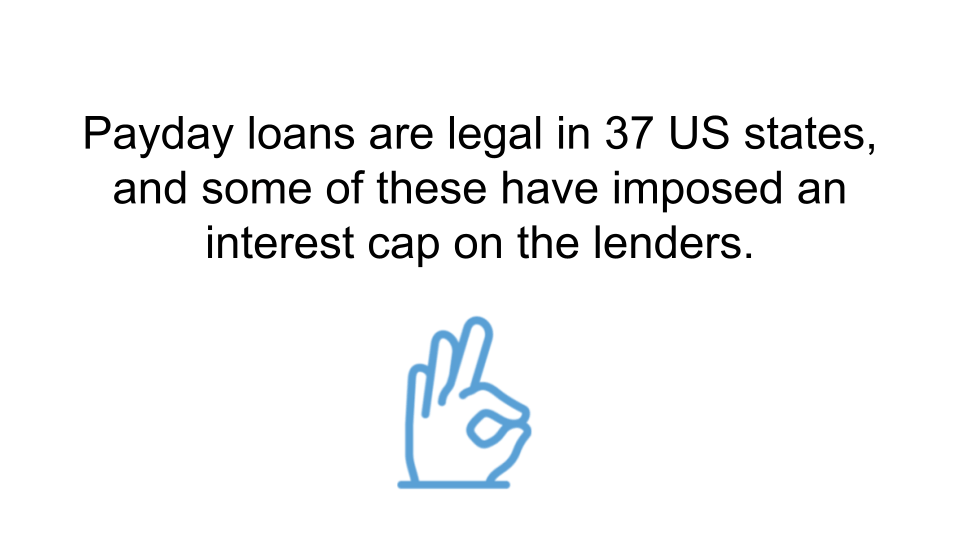Payday loans typically attract consumers who have low credit scores, which make them high-risk borrowers. In order to compensate for this risk, payday loan lenders will offer these prospective borrowers with loans that have a very high annual percentage rate (APR).
When you compare a payday loan to a more traditional loan, you might be shocked by how high the APR on a payday loan looks. This is because APR is based on annual measures of interest, so when it comes to a product like a payday loan which is often only used for a number of weeks, APR can become quite confusing.
APR can also be confusing as a measurement of interest and it can be difficult to understand how much your loan is actually costing you. With this in mind, this article will cover everything you need to know about the APR on a payday loan.
What is an APR?
An APR refers to the rate of interest that a borrower will pay to their lender when they take out a loan. It is calculated as an annual percentage, even though payday loans are typically only short-term loans.
An APR will represent the annual cost of funds for the lender. The lender is then able to choose whether they would like to add on any further fees to charge the borrower.
The Consumer Financial Protection Bureau advises consumers to use APR to compare payday loans, helping borrowers to make informed choices about who they borrow from. The representative APR is the rate of interest that will be granted to at least 51% of successful customers. The APR will vary based on the duration of the loan.
What is the Difference Between the Cost of Funds and APR?
The cost of funds refers to how much money a financial institution needs to pay in order to obtain funds. The lower the cost of funds, the greater the return will be for the lender when lending the money.
Thus, the difference between the cost of funds and the APR incurred by borrowers will be where the majority of financial institutions make their money. Before making the decision of whether or not to lend, lenders will assess the cost of funds to see how profitable it is for them.
What is the Average APR for a Payday Loan?
Payday loans are known for having extremely high APR rates. The exact APR will differ from lender to lender.
The average APR for a payday loan lies around 400% per $15 to $100 borrowed. Compared to 12-30% for credit cards, this rate is extremely high.
What is the Maximum APR That a Payday Loan Lender Can Charge?
Payday loans are legal in 37 US states, and some of these have imposed an interest cap on the lenders. However, the majority of these states permit payday loans with no restrictions or legislation. In these states, such as Texas and Nevada, the APRs on payday loans can reach up to between 390 to 780%.

Why is the APR for Payday Loans so High?
Payday loans operate on a short-term basis and are deemed to be relatively high-risk. Some reasons as to why they are so high include:
- APR is calculated at annual interest rate
Whilst the APR is calculated at an annual interest rate, the majority of payday loans are only designed to be used for a few weeks. With a payday loan, your APR is calculated by how much interest you will pay and is then multiplied as though you were paying it off for a full year. This is where the APR for a payday loan can look so terrifying.
- Payday loans are unsecured loans
Payday loans are unsecured. This means that unlike other loans such as a title loan, there is no collateral attached to the loan. As such, if the borrower defaults on their repayments, the lender is unable to repossess any of their assets to make up for this loss in value to them. Consequently, payday loans are high risk loans for the lenders.
- Payday loans attract borrowers with low credit scores
Payday loan lenders typically do not carry out hard credit checks. This means that the loans may attract those who have previously been in debt or have defaulted on a number of loans. As such, since payday loans may be their only option, lenders are able to charge higher APR.
- Payday loans are not usually repaid on time
More than any other loan, payday loans are often not repaid by their borrower. Around 15 to 20% of borrowers have not repaid their loan by the repayment date, with a quarter of payday loans re-borrowed a minimum of 9 times.
How Can You Find The Real Cost Of A Payday Loan?
Although APR offers a good baseline when comparing and considering payday loans, there are other factors that can be a lot more useful in working out whether a payday loan is right for you. The cost per daily interest that lenders charge is a very clear indicator of the cost of a payday loan. This measurement will tell you exactly how much you will be paying each day to borrow the money you need.
Another measurement to consider is the cost per $100 borrowed per month, this is an additional simple way to understand how much a loan will be costing you. Using either of these measurements you can easily workout how much your payday loan will be costing you.
Are Payday Loans A Good Financial Choice?
The answer to this question really depends on how much money you need to borrow, how long you need to borrow at for and what your personal financial situation looks like. A payday loan is only ever designed to be used as a measure to tide you over until your next paycheck.
If you need to borrow a very large amount of money will you need to borrow money for a very long period of time, a payday loan will not be the most financially sensible choice for you. However if you have come up against a financial emergency and you need to borrow money quickly and easily, a payday loan could be the right choice for you. It is always important that you know no you can pay off your loan when you take it out, so take time to consider how much your loan is costing you and whether you can afford it.


